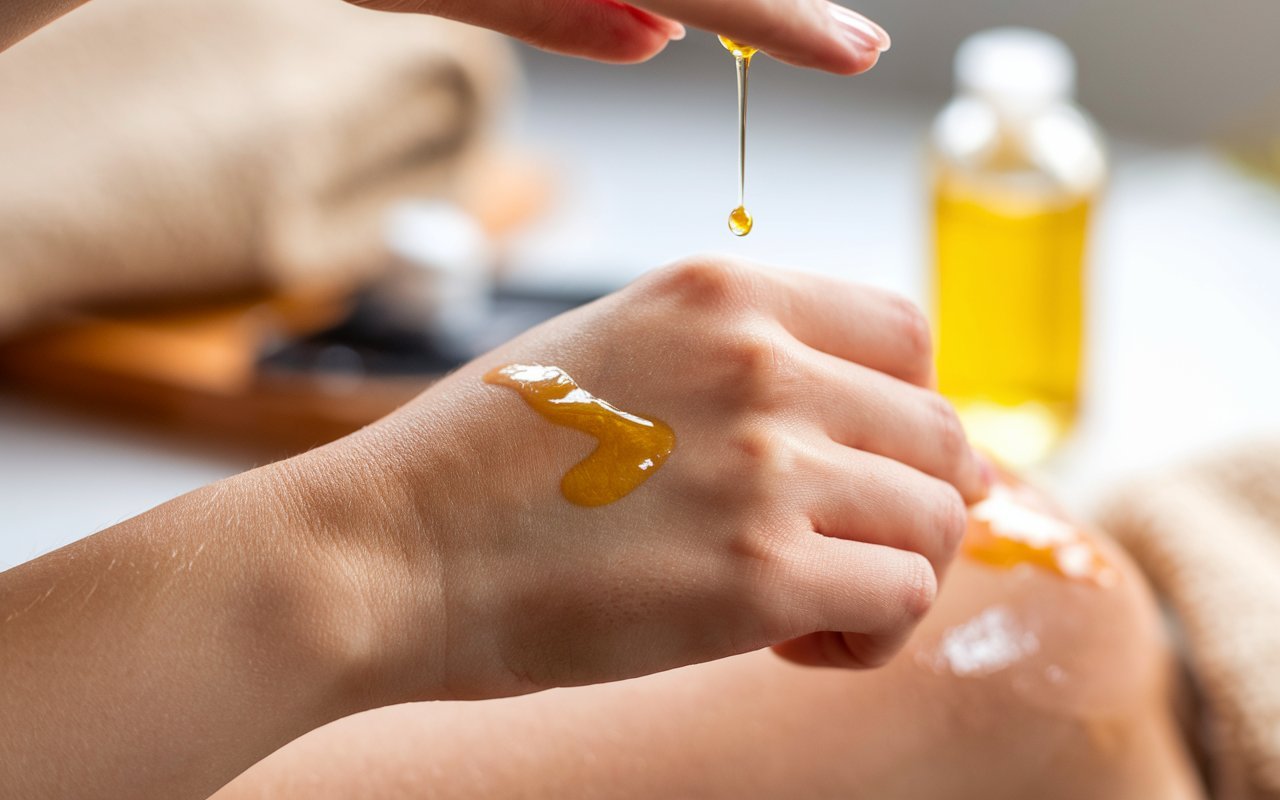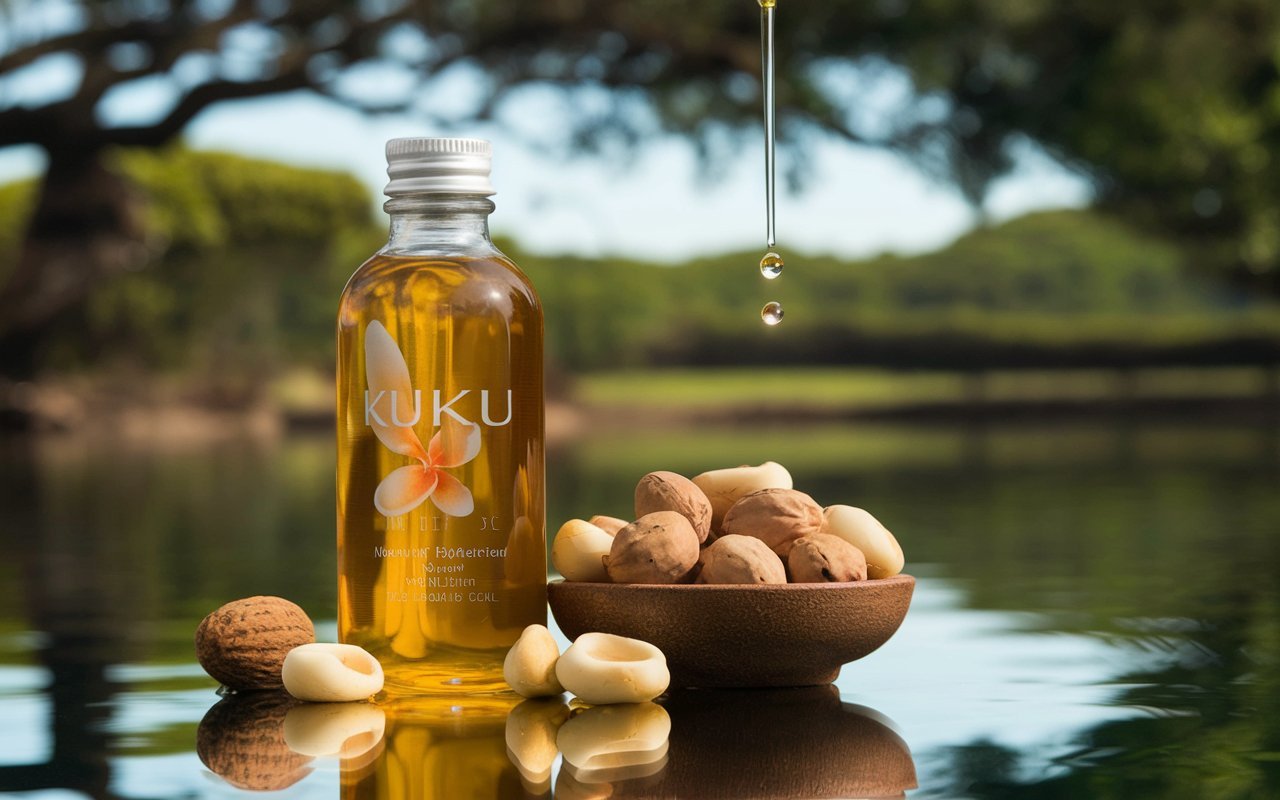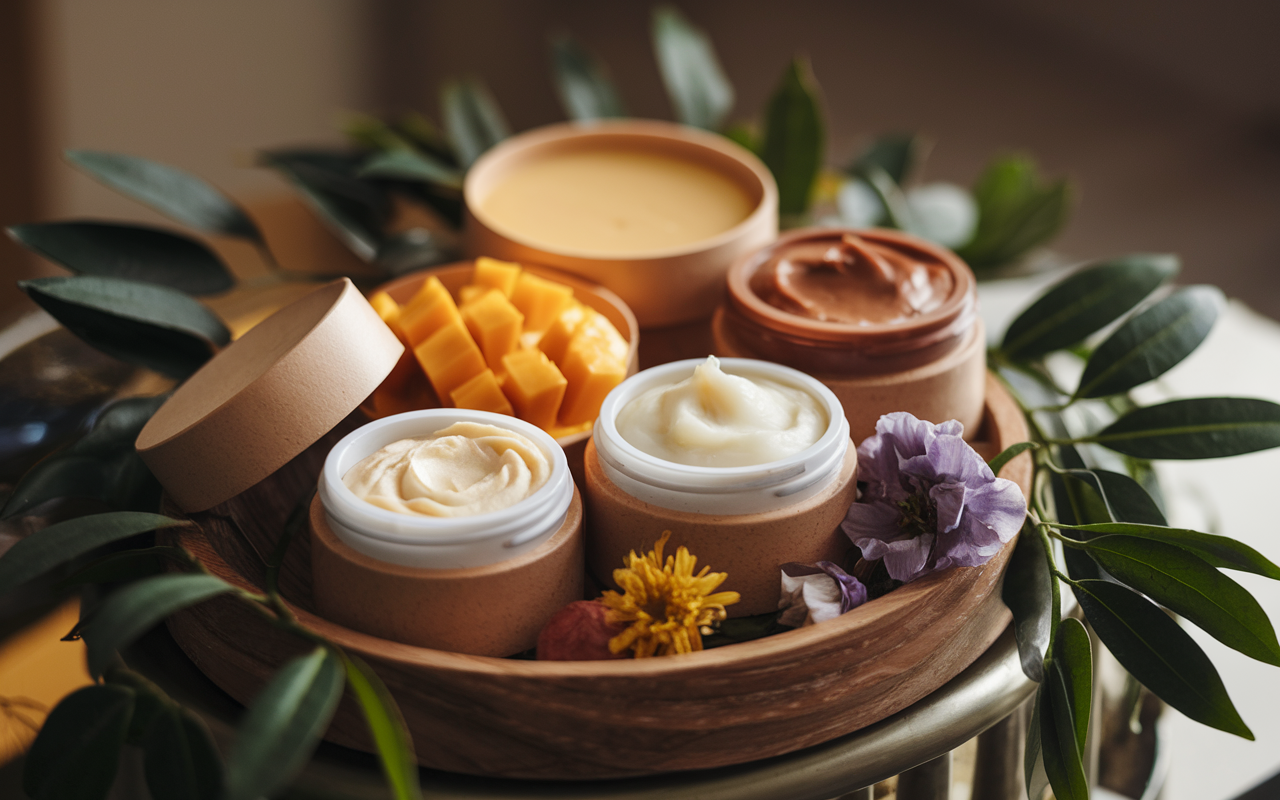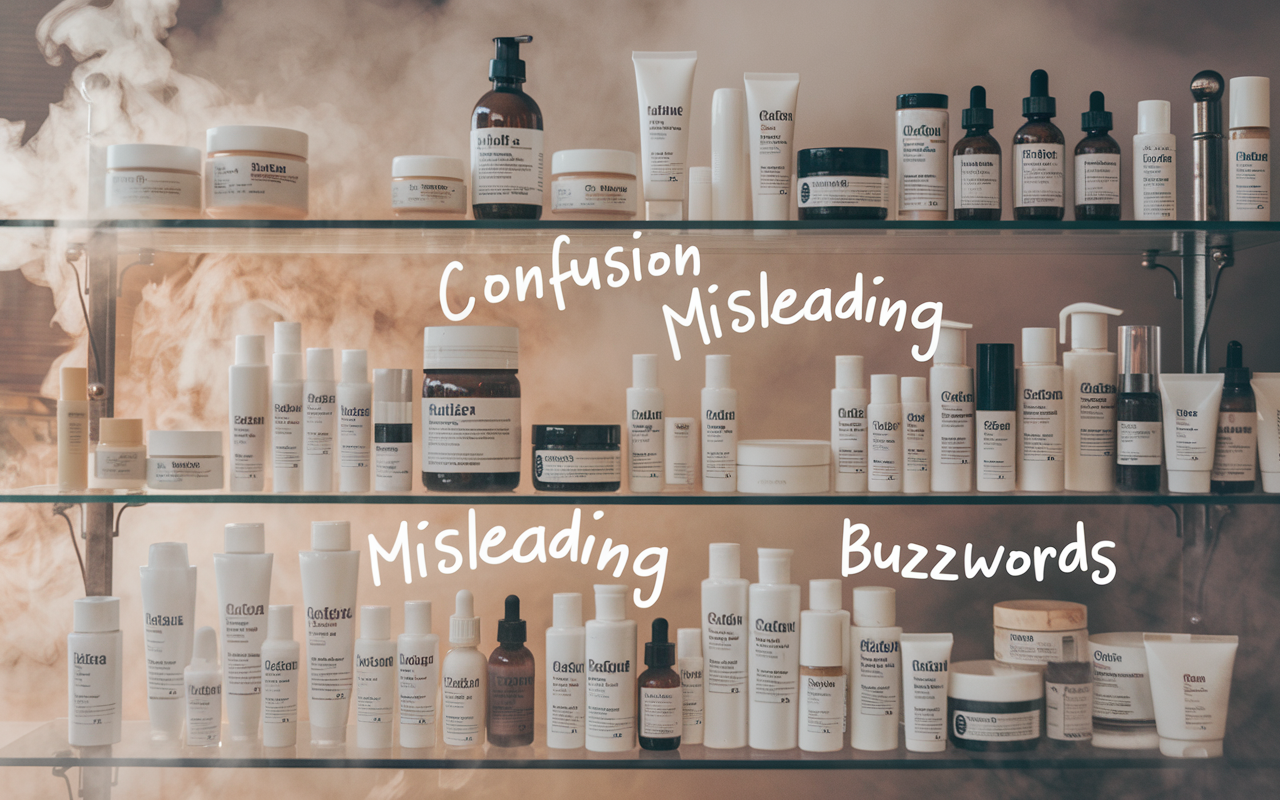
Introduction
Imagine your skin as a canvas, craving a touch of nature’s magic to transform it into a masterpiece. In the world of skincare, we often chase expensive, complicated solutions, but the secret to glowing, healthy skin might be simpler than you think. The answer could lie in something as unassuming as sunflower oil for skin care.
Sunflower oil for skin care is nature’s gift, packed with nutrients that nourish, protect, and heal your skin. This golden elixir is more than just a cooking staple—it’s a skincare essential that can deeply hydrate, fight aging, soothe irritation, and leave your skin feeling luxurious. Let’s embark on a journey to explore why sunflower oil deserves a permanent spot in your beauty routine.
The Natural Beauty of Sunflower Oil for Skin Care
Do you ever feel like your skin deserves better—something more natural, more soothing, and more in tune with the earth’s gifts? We live in a world full of chemically-laden beauty products that promise miracles but often fall short. But imagine a solution that’s pure, simple, and time-tested. That’s what sunflower oil for skin care offers—a naturally enriching oil that can nourish your skin like nothing else.
The beauty of sunflower oil for skin care lies in its simplicity. Derived from sunflower seeds, this golden liquid is a powerhouse of nutrients that work wonders for all skin types. Whether you’re battling dry skin, sensitivity, or the first signs of aging, sunflower oil can rejuvenate and restore balance to your complexion. Let’s explore why sunflower oil for skin care is not just a trend, but a timeless solution for radiant, healthy skin.
Understanding Sunflower Oil: What Makes It Special for Skin Care?
Sunflower oil for skin care is made by extracting the oil from sunflower seeds, specifically from the species Helianthus annuus. This oil is light, non-greasy, and easily absorbed by the skin, making it ideal for moisturizing without clogging pores.
But what truly sets sunflower oil apart from other oils in skin care? The answer lies in its nutrient composition. Sunflower oil is rich in vitamins, essential fatty acids, and antioxidants that provide deep hydration while fighting the damaging effects of free radicals and environmental pollutants. This balance of nourishment and protection makes sunflower oil for skin care a must-have for anyone looking to enhance their beauty regimen.
The History of Sunflower Oil in Skin Care
Sunflower oil has been used for centuries, not just as a food source, but as a beauty treatment. Native Americans were among the first to recognize the benefits of sunflower oil, using it to heal wounds, moisturize the skin, and protect against harsh weather conditions. Over time, sunflower oil has become a beloved ingredient in natural skincare practices across the world.
Nutritional Profile of Sunflower Oil for Skin Care
Vitamin E: The Skin Protector
One of the standout components of sunflower oil for skin care is its high vitamin E content. Vitamin E is a powerful antioxidant that protects the skin from the damaging effects of free radicals, which can cause premature aging. It helps in healing scars, reducing wrinkles, and keeping your skin looking youthful and vibrant.
Linoleic Acid: The Hydration Hero
Sunflower oil is particularly rich in linoleic acid, a fatty acid that plays a key role in maintaining the skin’s barrier. It helps to retain moisture, ensuring that your skin stays hydrated and soft throughout the day. This makes sunflower oil for skin care a game-changer for people with dry or dehydrated skin.
Oleic Acid: The Skin Softener
Oleic acid, another essential fatty acid found in sunflower oil, adds softness and elasticity to the skin. It helps to smooth out rough patches and improves the overall texture of your skin, leaving it silky and smooth to the touch.
The Many Benefits of Sunflower Oil for Skin Care
Hydration and Moisture Retention
Sunflower oil for skin care is a fantastic hydrator. It penetrates the skin deeply, locking in moisture without leaving behind a greasy residue. Whether used as a standalone moisturizer or as part of your skincare routine, sunflower oil helps maintain the skin’s natural hydration balance, preventing dryness and flakiness.
Anti-Aging Properties
Aging is a natural process, but who says we can’t age gracefully? Sunflower oil for skin care is rich in antioxidants like vitamin E, which combats the oxidative stress that leads to fine lines and wrinkles. Regular use of sunflower oil can help reduce the appearance of aging, giving your skin a youthful, radiant glow.
Sun Protection
Sunflower oil acts as a gentle shield, helping your skin recover from the harsh effects of the sun. While it may not block UV rays like sunscreen, its rich antioxidants, especially vitamin E, go to work by calming inflammation and repairing damaged skin cells. Over time, sunflower oil can help prevent the visible signs of sun damage, like premature wrinkles and dark spots, allowing your skin to heal and renew itself naturally. Think of it as nature’s way of giving your skin the love and care it deserves after a long day in the sun.
Sunflower Oil for Skin Care Based on Skin Types
Sunflower Oil for Dry Skin
Sunflower oil for skin care is like a soothing embrace for dry, parched skin. Its lightweight yet deeply nourishing texture penetrates the skin, replenishing lost moisture and bringing back that natural glow. Unlike heavy creams, sunflower oil absorbs quickly without leaving a greasy residue, making it ideal for even the most sensitive skin types.
As it works to rebuild your skin’s natural barrier, it locks in hydration and shields against the drying effects of wind, cold, and pollution. Over time, your skin feels not just hydrated but truly revitalized, as if it’s been given a second chance to bloom again. With each drop, sunflower oil nurtures your skin, wrapping it in a cocoon of softness and protection.
Sunflower Oil for Oily Skin
It might seem counterintuitive to use an oil for oily skin, but sunflower oil for skin care can actually help regulate the skin’s natural oil production. Its lightweight, non-greasy texture balances oil levels without clogging pores, making it ideal for oily or combination skin types.
Sunflower Oil for Sensitive Skin
Sensitive skin often feels like it’s constantly walking on a tightrope—one wrong move, and irritation flares up. But sunflower oil for skin care is like a comforting friend for sensitive skin. Its delicate, non-irritating formula glides on effortlessly, soothing the burning discomfort that comes with redness, inflammation, or even rosacea.
Unlike harsh chemicals or overly thick creams that can overwhelm fragile skin, sunflower oil is gentle enough to restore balance without causing further irritation. It nourishes your skin in the most tender way, helping it heal and regain its strength, while offering protection from external triggers that typically cause flare-ups. With each application, sunflower oil reassures your skin, bringing a calmness and peace that it longs for. Whether it’s calming an allergic reaction or simply offering daily care, this oil wraps your sensitive skin in a blanket of natural, loving care.
Sunflower Oil for Acne-Prone Skin
For acne-prone skin, finding the right product can feel like navigating a minefield. Fortunately, sunflower oil for skin care is non-comedogenic, meaning it won’t block pores or contribute to breakouts. Its anti-inflammatory properties can help reduce the redness and swelling associated with acne, while its antioxidants support skin healing.
Tips for Including Sunflower Oil in Your Skincare Routine

As a Daily Moisturizer
One of the easiest ways to incorporate sunflower oil for skin care into your routine is by using it as a daily moisturizer. After cleansing your face, simply apply a few drops of sunflower oil, massaging it gently into your skin. It absorbs quickly, leaving your face hydrated and soft without any greasy residue.
As a Makeup Remover
Sunflower oil can also be used as a natural makeup remover. Its gentle yet effective formula breaks down even the most stubborn makeup products, including waterproof mascara. Simply apply a small amount to a cotton pad and swipe it over your face to remove makeup, dirt, and impurities.
As an Anti-Aging Treatment
For those looking to reduce the signs of aging, sunflower oil for skin care can be used as a night treatment. Apply it to clean skin before bed, allowing its antioxidants and vitamins to work their magic overnight. Wake up to smoother, younger-looking skin that feels refreshed and renewed.
Comparing Sunflower Oil to Other Oils in Skin Care
When it comes to skin care, there are countless oils to choose from, each with its own benefits. But how does sunflower oil for skin care stack up against other popular options?
Sunflower Oil vs. Coconut Oil
Coconut oil is often hailed as a miracle ingredient for skin care, and while it does offer deep hydration, it can be too heavy for some skin types. Coconut oil is comedogenic, meaning it can clog pores, especially for those with acne-prone or oily skin. In contrast, sunflower oil for skin care is lightweight, non-comedogenic, and absorbs quickly without leaving behind a greasy residue. For those seeking hydration without the risk of breakouts, sunflower oil is often the better choice.
Sunflower Oil vs. Olive Oil
Olive oil is another popular option in the natural skin care world. Like sunflower oil, it’s rich in antioxidants and provides deep moisture. However, olive oil has a thicker consistency and can feel heavier on the skin. Sunflower oil for skin care, on the other hand, has a lighter, more breathable texture, making it a preferred option for those with sensitive or oily skin.
Sunflower Oil vs. Jojoba Oil
Jojoba oil is a great choice for mimicking the skin’s natural oils, but sunflower oil for skin care offers something unique with its high concentration of linoleic acid. This essential fatty acid is especially beneficial for dry and dehydrated skin, as it locks in moisture and repairs the skin barrier. If hydration is your main goal, sunflower oil is a true hydration hero.
DIY Sunflower Oil Skin Care Recipes

One of the best things about sunflower oil for skin care is its versatility. You can easily create your own nourishing skin treatments using this natural oil. Here are a few simple and effective DIY recipes to pamper your skin.
Sunflower Oil and Honey Hydrating Mask
This hydrating mask is perfect for dry skin, combining the moisturizing properties of sunflower oil with the natural humectant powers of honey.
Ingredients:
1 tablespoon sunflower oil
1 tablespoon raw honey
Instructions:
Mix the sunflower oil and honey together until well blended. Avoid the region around the eyes and apply the mixture to clean, dry skin. After 15 to 20 minutes, remove it with a warm water rinse. You’ll experience extremely moisturized, silky, and soft skin.
Sunflower Oil Sugar Scrub
Exfoliate and hydrate your skin at the same time with this gentle yet effective sugar scrub.
Ingredients:
1/2 cup sugar
1/4 cup sunflower oil
A few drops of essential oil (optional)
Instructions:
Mix the sunflower oil with the sugar until you have a paste-like consistency. A few drops of your favourite essential oil can be used if desired. Use this scrub in the shower, massaging it into your skin in circular motions before rinsing. Your skin will be soft, luminous, and smooth after using it.
Sunflower Oil Night Serum
Create your own anti-aging night serum with just two ingredients.
Ingredients:
1 tablespoon sunflower oil
2-3 drops of vitamin E oil
Instructions:
Mix the sunflower oil with vitamin E oil and apply it to your face and neck before bed. This serum is packed with antioxidants and will work overnight to nourish your skin and fight the signs of aging.
Sunflower Oil for Skin Care and Healing Skin Conditions
One of the most powerful aspects of sunflower oil for skin care is its ability to help heal and soothe a variety of skin conditions. Let’s look at how this oil can support your skin’s health when faced with common challenges.
Sunflower Oil for Eczema
Eczema can leave the skin red, irritated, and incredibly dry. Sunflower oil, with its high content of linoleic acid, helps to restore the skin’s natural barrier, locking in moisture and reducing the irritation associated with eczema. Its anti-inflammatory properties can also calm flare-ups, offering relief to those who suffer from this frustrating condition.
Sunflower Oil for Psoriasis
Psoriasis is another chronic skin condition characterized by thick, scaly patches. Sunflower oil’s emollient properties soften these patches and improve the skin’s texture. With regular use, sunflower oil for skin care can help reduce the severity of psoriasis symptoms, offering a natural, soothing alternative to harsh medications.
Sunflower Oil for Scars and Blemishes
Sunflower oil’s rich antioxidant profile helps to fade scars and blemishes over time. Whether you’re dealing with acne scars or marks from an injury, the vitamin E in sunflower oil accelerates the healing process and promotes skin regeneration, leaving your complexion more even-toned and smooth.
The Role of Sunflower Oil in Preventing Premature Aging
Premature aging is a common concern, but sunflower oil for skin care provides a natural solution. As we age, our skin becomes more vulnerable to free radicals—unstable molecules that can cause cellular damage, leading to fine lines, wrinkles, and a loss of elasticity. Sunflower oil’s high concentration of antioxidants, particularly vitamin E, helps neutralize these free radicals, preventing them from wreaking havoc on your skin.
Additionally, the essential fatty acids in sunflower oil help to maintain the skin’s barrier, keeping it hydrated and resilient. By incorporating sunflower oil into your skin care routine, you can slow down the visible signs of aging and keep your skin looking youthful and glowing for longer.
Is Sunflower Oil Safe for Skin Care?
Absolutely! Sunflower oil is one of the safest oils to use on your skin. All skin types can benefit from its gentleness and hypoallergenic nature. Whether you have sensitive, oily, dry, or acne-prone skin, sunflower oil for skin care is unlikely to cause irritation or breakouts. In fact, its soothing properties make it ideal for those with skin conditions like eczema or psoriasis.
However, as with any new product, it’s always a good idea to do a patch test before applying sunflower oil to your entire face or body. Apply a small amount to a discreet area of your skin and wait 24 hours to ensure there are no adverse reactions.
Conclusion: Why Sunflower Oil for Skin Care is the Best Choice

When it comes to skin care, sometimes the simplest solutions are the most effective. Sunflower oil for skin care is a gentle yet powerful ingredient that can transform your skin from dull and dry to radiant and glowing. With its rich blend of vitamins, essential fatty acids, and antioxidants, sunflower oil nourishes your skin from the inside out, helping to hydrate, protect, and heal.
If you’re searching for a natural, versatile, and effective addition to your skin care routine, look no further than sunflower oil. It’s a timeless remedy that will leave your skin feeling soft, smooth, and beautifully radiant—just the way nature intended.
FAQs
Q: Can I use sunflower oil for skin care if I have oily skin?
A: Yes! Sunflower oil won’t clog your pores because it is non-comedogenic and lightweight. It actually helps balance oil production, making it suitable for oily and combination skin.
Q: How often should I use sunflower oil on my face?
A: You can use sunflower oil daily as a moisturizer or treatment. Its gentle formula is safe for everyday use, morning or night.
Q: Is sunflower oil effective for reducing wrinkles?
A: Yes! Sunflower oil is rich in vitamin E and other antioxidants that help fight free radicals, which are responsible for premature aging. The appearance of wrinkles and fine lines can be minimized with regular use.
Q: Can sunflower oil help with acne scars?
A: Absolutely. The antioxidants and anti-inflammatory properties of sunflower oil help to fade scars and promote skin healing, making it a great choice for those dealing with acne marks.
Q: Can sunflower oil protect my skin from the sun?
A: While sunflower oil contains antioxidants that help defend against sun damage, it should not be used as a replacement for sunscreen. Always use a dedicated sunscreen with SPF to protect your skin from UV rays.
Also Visit:
The Ultimate Guide to Foaming Facial Cleanser for Skin Care – Embrace the Glow 2024
The Ultimate Guide to Rose Oil for Skin Care 2024 – The Natural Elixir for Lasting Radiance
Body Cream vs Body Lotion – Discover the Perfect Match for Your Skin 2024



